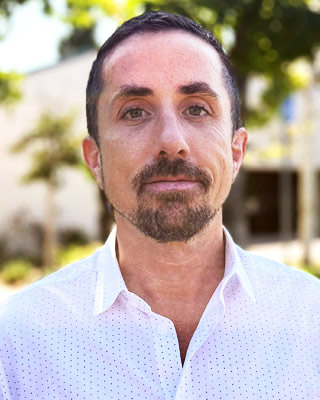Key Takeaways
- Family therapy helps rebuild trust, improve communication, and strengthen relationships during PTSD and trauma recovery.
- Trauma recovery is more sustainable when families share coping skills and support each other consistently.
- At 12 South Recovery, family therapy is integrated with evidence-based treatments like CBT, DBT, and trauma therapy for full recovery support.
Healing Together Matters
PTSD affects not just the individual but also the family. According to the U.S. Department of Veterans Affairs, trauma symptoms often strain communication and relationships at home. Families may feel distant, frustrated, or confused, while the person with PTSD may feel isolated or misunderstood. At 12 South Recovery, we believe family therapy provides a safe setting where everyone can better understand PTSD, practice healthier communication, and strengthen trust.

What is Family Therapy
Family therapy is a type of counseling where family members meet together with a therapist to strengthen relationships, resolve conflicts, and support the person facing mental health challenges. The main goal is to create healthier communication and a more stable home environment.
Families who are coping with PTSD, trauma, addiction, depression, or anxiety often benefit the most from this kind of therapy. Daily life can feel tense when communication breaks down, conflicts repeat, or loved ones feel disconnected. In family therapy, members have a structured space to share their thoughts and feelings safely, without blame.
Therapists guide these sessions by helping families listen more effectively, manage stress together, and create realistic strategies for daily living. This process reduces misunderstandings and gives everyone a chance to be heard.
At 12 South Recovery, family therapy is a key part of treatment, especially for PTSD and trauma recovery. Healing lasts longer when the whole family learns new coping skills, improves communication, and supports recovery as a team.
What is PTSD
PTSD (Post-Traumatic Stress Disorder) is a mental health condition that can develop after experiencing or witnessing a traumatic event. Symptoms often include intrusive memories, nightmares, flashbacks, avoidance of reminders, emotional numbness, and hypervigilance.
PTSD is especially common among military veterans, first responders, survivors of abuse, natural disasters, or serious accidents. However, anyone who has lived through trauma may develop it. The intensity and frequency of symptoms vary, but daily life is often disrupted in clear ways.
For some, PTSD shows up as difficulty sleeping, sudden mood changes, panic attacks, or being easily startled. Others may withdraw from loved ones, avoid crowds, or feel disconnected even in familiar environments. These patterns can strain work, relationships, and health.
PTSD does not only impact the person with the diagnosis. Family members often feel stress and frustration, as they may not know how to respond to sudden mood shifts or emotional withdrawal. Family therapy helps loved ones better recognize what PTSD is, what it looks like day-to-day, and how they can respond in ways that bring support rather than conflict.
What is Trauma Recovery
Trauma recovery is the process of regaining emotional and psychological stability after a deeply distressing experience. It involves learning new coping skills, processing painful memories in safe ways, and slowly rebuilding trust with others.
People who have survived abuse, combat, accidents, loss, or ongoing stress often struggle the most with recovery, but trauma can affect anyone. Daily life may feel disrupted with patterns like avoiding reminders of the event, experiencing intense emotional reactions, or feeling disconnected from others.
Recovery is rarely quick. It takes time, patience, and consistent support to feel safe again. For many, having family members involved in therapy builds resilience and prevents isolation. Loved ones can encourage healthy coping, provide perspective, and share in rebuilding stronger relationships.
At 12 South Recovery, we combine trauma-focused therapy with holistic approaches such as mindfulness, yoga, and family therapy. This combination helps clients not only manage symptoms but also create healthier, lasting ways to move forward.
How Does Family Therapy Support PTSD and Trauma Recovery
Family therapy gives families the tools and strategies to reduce stress, improve relationships, and create a stable environment.
Family therapy helps by:
- Improving communication so misunderstandings decrease.
- Teaching coping skills to manage triggers and stress together.
- Strengthening relationships through structured conversations and shared goals.
- Creating space where family members can build trust again.
- Enhancing connection so the person with PTSD feels supported instead of isolated.
When families work together, recovery becomes less about one person carrying the weight and more about a shared process of growth.
What are the Benefits of Family Therapy
The benefits of family therapy extend to both the individual with PTSD and the family as a whole:
- A stronger support system at home.
- Less conflict and more cooperation.
- Families gain education about PTSD and trauma recovery.
- Healthier coping skills to handle stress and triggers.
- Better problem-solving as a unit.
At 12 South Recovery, families often report feeling closer and more confident after working through therapy sessions. The changes carry into daily routines, making recovery more sustainable.
Techniques Used in Family Trauma Therapy
Different therapeutic models are applied based on the needs of the family. Common techniques used in family trauma therapy include:
- Cognitive Behavioral Therapy (CBT): Helps family members identify and change unhelpful thoughts and behaviors.
- Dialectical Behavior Therapy (DBT): Builds emotion regulation and communication skills.
- Trauma Therapy: Provides tools for processing traumatic memories in safe ways.
- Holistic Approaches: Incorporate mindfulness, yoga, or art therapy to reduce stress and promote connection.
At 12 South Recovery, we adapt these techniques to fit each family’s dynamics, helping them grow stronger as a unit.
Who Can Benefit from Family Trauma Therapy
Families where one or more members struggle with PTSD, trauma history, or substance use benefit greatly from family therapy. This includes:
- Veterans and their families
- Families coping with childhood trauma that continues into adulthood
- Parents supporting teens with trauma-related symptoms
- Spouses and partners affected by PTSD-related withdrawal or anger
Even extended family members can participate when their involvement supports the recovery process. At 12 South Recovery, therapy is inclusive and structured so everyone feels heard.
Healing as a Family Starts at 12 South Recovery
It may feel like there is no escaping the isolation of trauma and PTSD, but healing is exponentially more powerful when families recover together. At 12 South Recovery, we help families go through therapy that restores trust, rebuild relationships and improves day to day living.
Call 12 South Recovery Today! Our team is here to support you and your family with effective treatment and caring guidance.







































